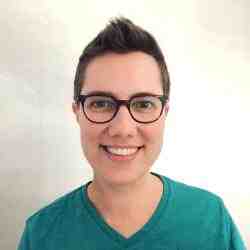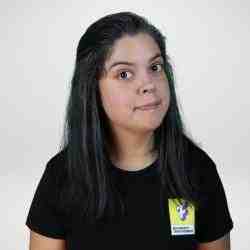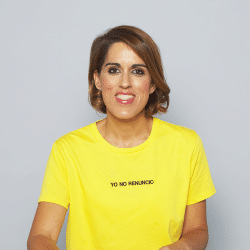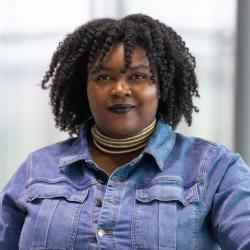Introduction
Vanessa’s new idea is to cultivate real life ‘Planet Protectors’ by empowering young people to be environmental change agents within their family units. Through joy, humor, storytelling and arts-based play, Vanessa holistically cultivates lasting changemaker identities through the public-school system in partnership with municipalities.
The New Idea
Vanessa LeBourdais tackles the disconnect between climate change and deep-seated consumerist norms by empowering kids to be environmental change agents within their family units. Vanessa’s ‘Planet Protector Academy’ innovation supports children to become environmental change agents and then leverages the child’s new role to shape their family’s day-to-day lifestyle and practices.
The Planet Protector Academy (PPA) is an environmental change agent apprenticeship program. Unlike other programs that focus on intellectual, fact-based approaches with little action or measured change, the PPA initiates children to join a community of practice for environmental stewardship. After establishing a learning environment that welcomes vulnerability, curiosity and risk taking, Vanessa’s programs engage young people in a collective apprenticeship that is focused on storytelling, comedy and art-based play. The PPA is designed to be “like going to Jedi school”. It is delivered to elementary school classrooms via an award-winning web platform, with teachers registering online and facilitating the training modules for their students. Each PPA program is built around video segments in which environmental superhero characters call on children to be protagonists in a story of changemaking. Students take the on-screen story of environmental stewardship offline and into real-life changemaking. Students are sent on “Missions” to affect their immediate environment including their family unit. Students are expected to measure their change and report back in a collective manner to their Planet Protector peers.
The PPA specifically targets young people between 5-10 years old. In that time period children begin to form an identity and recognize their personal agency. They particularly enjoy learning from games with rules and still believe in stories and myths. The PPA leverages the power of ‘kids bugging their parents’ and empowers children to lead change in their family units. Studies from the PPA program demonstrate that over 90% of children take the messaging home and try to change their families, and 73% report feeling like real-life planet protectors. As a result, 50% of participating children changed their family’s driving habits, 70% have changed energy habits, and 60% reduced their total waste. In one study, 87.5% of families were still actively participating in PPA-designated environmental missions one year later. By targeting young people, Vanessa is creating new habits and long-term change for youth and their communities.
The Problem
Vanessa is resolving the disconnect between humans and the environment, which starts to develop at a very young age in western society. The dominant narrative teaches young people and individuals to prioritize their own needs, independent of their effect on the world and the planet. This narrative cultivates behaviors that are harmful for the planet, rather than behaviors that take care of the natural resources and living organisms that sustain life. This results in a passive consumerist culture, leading to the disempowerment of citizens. Furthermore, several studies have shown that across nations with annual incomes above $20,000, there is no correlation between increased income and increased happiness. With climate change as one of the greatest threats of all time, a large cultural shift from the consumerist system of disconnect and domination, to one of environmental interdependence and interconnectedness is essential.
Environmental education initiatives currently fall short because ‘calls to action’ are limited to only the mind of the audience and, in some cases, the heart. For instance, Green Learning is a prominent education program that includes commonplace lesson plans and teacher-curated learning modules on topics, such as energy climate and sustainability. Other intellect-focused strategies for children aim to make information more child friendly. For example, Canada’s Federal Ministry of Environment and Climate Change’s climate education program for kids ages 8-15 is a comic book-like test. Other programs provide information and then encourage young people to take to action – but only focused on the mind. For example, Alliance for Climate Education’s social-justice lens engages teens through digital climate change education resources, followed by encouragement to mobilize and take political action. David Suzuki’s national environmental initiatives focus on environmental rights-based advocacy campaigns and follow with a call to action.
The mainstream focus on intellectual connection falls short in tackling deep-seated consumerist cultural habits. This is because facts alone are not enough to mobilize widespread change—especially when the overwhelming narrative of fact-based doom and gloom further disempowers citizens to act. Cognitive scientists have shown that deep cultural shifts have more to do with identity and ideology than data and facts. We also know from lessons in behavioral science that what is missing from most mainstream environmental education initiatives is the full-bodied approach – involving the mind, heart and body and spirit. Citizens need to believe in and practice new values like interdependence and interconnectedness within the family unit and community to overcome barriers of disempowerment or disengagement. Finally, a key oversight in environmental education is the lack of attention to putting kids at the center of the change. Educational initiatives rarely give children full agency and cultivate a liminal experience that will shift their trajectory towards environmental stewardship for the long term.
The Strategy
Vanessa’s innovation was sparked in 1997 in Vancouver, British Columbia, where she was producing live theatre programming around water conservation and littering for school children. While impactful, the theatre model was expensive and limited in its reach to Vancouver and surrounding communities. As such, Vanessa and team experimented with online/offline story-creation to create a web-based program that could give children the full-body experience of a live show and motivate them to go home and change their families’ habits, without Vanessa or other actor colleagues needing to be physically present. Through the integration of interactive digital media, Vanessa was able to exponentially increase the potential to scale to new regions and build in mechanisms to measure behavior change in participating kids and families.
Vanessa’s next steps in scaling the model included securing values-aligned distribution partners to help the PPA reach more children. To date, Vanessa and her team have found that the PPA programs align well with municipal environmental outreach needs, and thus their prime scaling partners have been municipal governments. Vanessa leverages the PPA’s community impact data to demonstrate to municipalities how the program advances their environmental aims, encouraging city buy-in. Municipalities pay to license PPA programs and promote them to their local school boards; by the time the PPA reaches the school and classroom level, the program can be offered at no cost to participating schools or families. Adoption of the program within classrooms is easy, as teachers are provided the online platform and facilitation materials. Since municipal environmental outreach objectives are quite consistent throughout Canada and much of the US, Vanessa and her team have a relatively time-efficient approach to adapt the program to each new context. In 2017, the British Columbia government became their first provincial partner to license the program for province-wide distribution.
As Vanessa increases her reach, she remains committed to adding new content to the PPA platform, such as the latest Emergency Preparedness Squad (EPS) and H2Whoa, a water conservation program. H2Whoa integrates Indigenous ways of knowing and views on water. The program was designed in partnership with IndigenEyez, a BC-based Indigenous-led youth empowerment non-profit, and First Nations Technical Services Advisory Group (TSAG) in Alberta. Vanessa is currently continuing the process of integrating Indigenous knowledge and perspectives into other PPA programs, including Zero Heroes and Keep Cool!
To ensure the integrity of her programming as she expands into new content areas, Vanessa has codified her praxis. This includes targeting a specific age group (5-to-10-year old) because, at this age, kids are beginning to create their identity and recognize their personal agency but are not yet prone to social or peer related pressures. From that basis, Vanessa establishes a learning environment that welcomes vulnerability, curiosity and risk-taking. PPA’s apprenticeship model engages kids through storytelling and personification, which allows for sensemaking, and is the primary vehicle for kids to unlock their own sense of self-advocacy and agency. She also uses comedy to animate their openness and learning potential: demonstrating that adults can speak kids’ language through comedy allows the children to feel understood and enables them to be more receptive. Other elements of her praxis include arts-based play for a full-bodied learning experience, which creates an immersive and experiential learning journey that can have a lasting impact on identity. By 2025, Vanessa aims to reach 5M children/year and transform them into changemakers, who not only feel like superheroes but have proven they can change the world in a measurable way.
Since their original partnership with the City of Vancouver in 1997, Vanessa and her team at DreamRider Productions have delivered programming in 125 cities across Canada, a handful of cities in the US and in two schools in India. As of 2019, they have reached approximately 850,000 children in total at a rate of around 50,000 children a year (including both live theatre and the PPA). The results of the PPA are impressive: 73% of children feel like real planet protectors after participating in the program. As well, 97% of teachers said they would recommend the program to other teachers. 90% of children take the environmental messaging home, and in one study conducted in Abbotsford, BC, 87.5% of families reported that they are keeping up with their environmental missions one year later. These statistics confirm Vanessa’s promising approach to driving real and meaningful change – at scale. Going forward, Vanessa’s vision is to extend the reach of Planet Protector’s interactive and impactful story of kids as real life superheroes through TV and movie partnerships. As of 2019, Vanessa has successfully engaged American television networks in conversations about realizing this vision.
The Person
Vanessa’s attributes her passion and connection to nature to her grandmother’s commitment to raise her in the wilderness of a small island on Ontario’s Georgian Bay. Her grandmother was the first social change agent in her life; a woman who became famous in the 1960s for her fight against the Canadian justice system to free a 14-year-old murder suspect.
When Vanessa was 25, she moved to Tofino, British Columbia - a small town on the wild western coast of Vancouver Island. Vanessa recalls a pivotal moment when, one day, her landlady clear-cut the rainforest in her backyard to make a parking lot. As she watched the stumps burn outside her kitchen window, her “environmental consciousness” was born. Thereafter, she joined environmental groups and started building her community organization skills. At the same time, Vanessa was healing from another traumatic experience, and believes that it was the land that walked her through that recovery journey.
Later, she felt a strong call to move to Vancouver to pursue musical theatre. During this time, she met her husband and creative collaborator, actor and writer, Ian Gschwind. In 1997, they were hired by the City of Vancouver to write a play for young kids about littering. That play was soon joined by two more plays and, through word of mouth, their work spread to almost all the 20 cities in the Lower Mainland. In 2002, Vanessa founded DreamRider Productions, the charitable organization behind the Planet Protector Academy.
An anti-racist online activist, Vanessa initiated and co-led a successful equity initiative in Nonprofit Happy Hour, a Facebook group of over 40,000 non-profit workers and leaders across the US, Canada and beyond, and co-led a similar initiative in a similar group of over 6,000 Executive Directors.
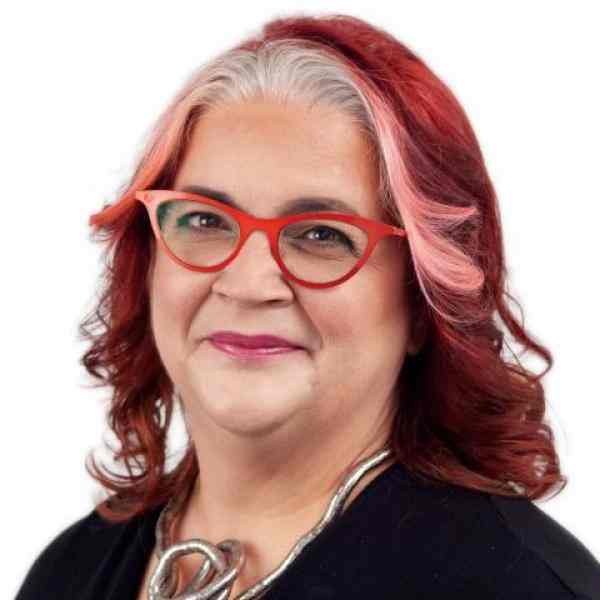
 Tile image
Tile image